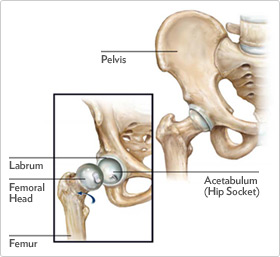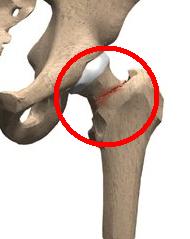I’ve been living with a hip injury for the past 8+ years, dating all the way back to my San Francisco days. I recall finishing up my workout at Crunch in the stretch area, sitting in a wide angle stretch (legs are wide open with your chest leaning forward) when all of a sudden I hear a pop in my groin. Didn’t think anything of it until the next day when I was super sore and limping for about 3 days. Then I was back to norm doing my usual workouts – thinking nothing of it.
I was a trainer then but was only 2 years into the profession so wasn’t experienced enough to know the repercussions of this pop, what my body was going through to heal it and not understanding pain and how the body changes when it experiences an injury.
The body is an amazing machine. It will adapt to anything that it’s exposed to for a certain length of time. Adaption can occur even in just 5 days. Repetitive motion triggers your nervous system sending it messages that the action must be done so your musculoskeletal system responds by stabilizing, strengthening, and compensating. That one repetitive action becomes part of your physical being changing your body in ways that can’t be reversed unless you take the steps to do so. We all experience this every day in our lives.
This is exactly what happened to my hip. The injury has evolved and has now created weakness in my adductors (inner thighs) and instability in the hip causing the surrounding muscles (glute medius and maximus, psoas, tensor fascia latae, IT band(not a muscle)) to pull and compensate, overloading weaker muscles (rotators and abductors) and joints (hip socket and sacroilliac). All these years, I’ve visited chiropractors, massage therapists, acupuncturists, Gyrotonic instructors, physical therapists galore – all had their hypothesis but all unsure of where the injury lay and how my body was responding to it. But the pain was second nature to me so I tried to fix it myself. Focus on strengthening weaker muscles, aligning and watching my gait when running and always being aware of my form when doing any exercises. Lots of analysis and investigating on the source of where the pain was coming from led me to believe that I had once torn a ligament or the attachment to my hamstring and my body changed due to it. That was my final answer and I was sticking to it.
Up until last week, when I finally visited an orthopedic surgeon. My visit was for other reasons but I figured I’d maximize my time there and have my whole body looked at. X-rays came back great however he recommended I get an MRI for my hip as he suspected a labral tear.
Your hip is a ball and socket joint. The labrum is a type of cartilage that surrounds the ball and socket and forms a ring around the bony structure and provides stability to the joint.

Repetitive use/activity or an acute injury such as a fall or accident can create a rip or tear to this cartilage leading to a labral tear. The MRI I had this morning actually showed the contrary. Doc informed me that instead I may have a stress fracture in the femoral neck of my hip.

Stress fractures are tiny cracks in a bone and are caused by the repetitive application of force, often by overuse such as repeatedly jumping up and down or running long distances. Both of these injuries are susceptible in athletes and those that are active in their lifestyle (runners, dancers, martial art-ists? ;)) and it all boils down to pin pointing the problem and taking those steps to recovery. My symptoms can lead to either the labral tear or the stress fracture. Doc said that because I was trying to heal it and worked on strengthening that prevented the injury from getting any worse. Great news is neither of these injuries result to surgery and both can be managed with rest.
Chronic pains are no fun but once established, take a break and rest from the activity that causes this pain. Allow your body to heal. Try another activity that allows your body to move differently. Take the time to stretch and recover. This will prevent you from more serious and permanent damage that can eventually take you off your feet for longer than you’d like. This Tuesday, I’ll have a better gauge of what the injury really is when the doctor reviews the MRI with me. My next steps of recovery await.
Tell me about some chronic pains you’ve been feeling and what you’ve been doing to relieve them.